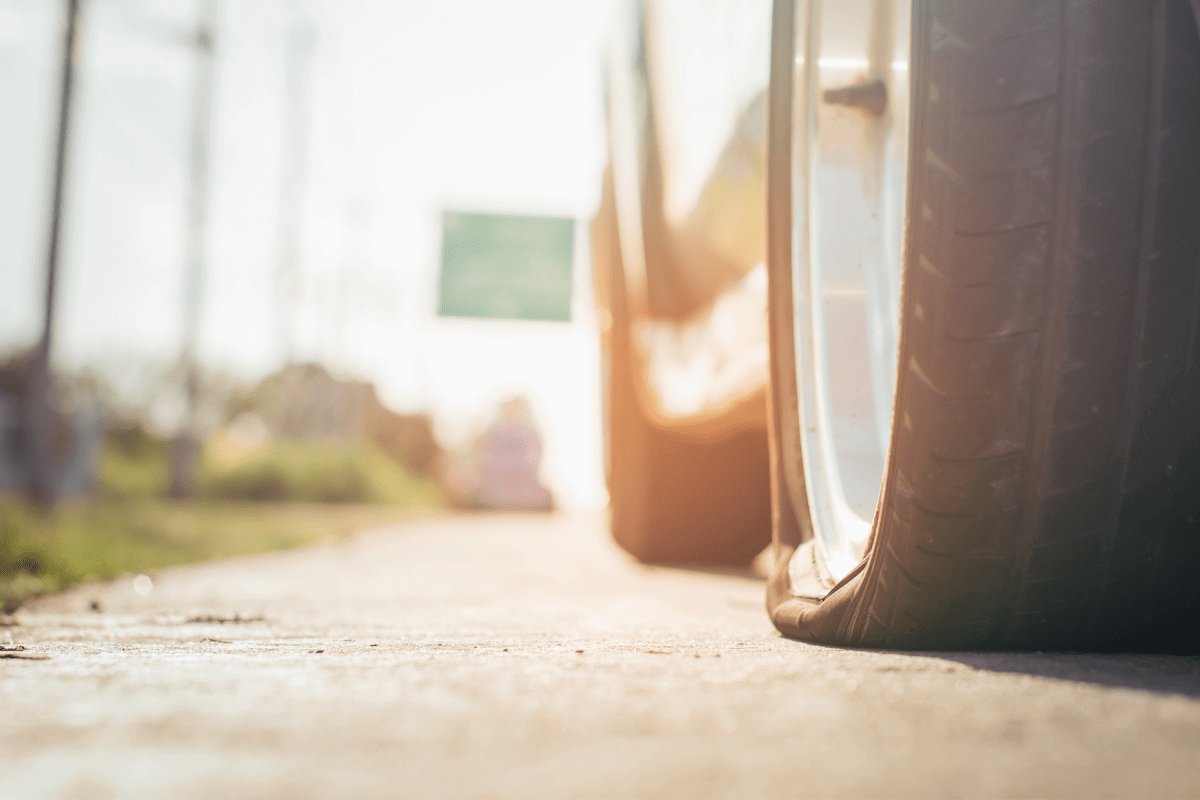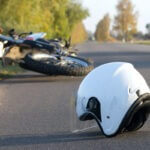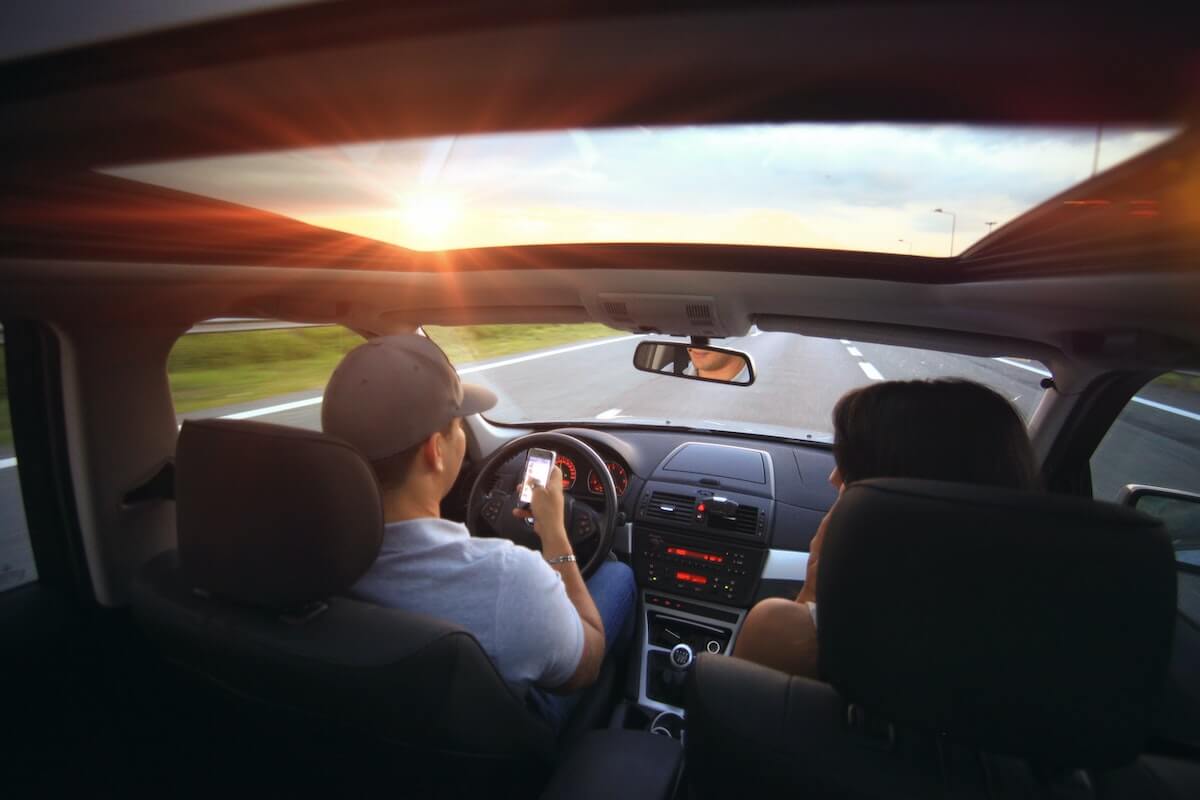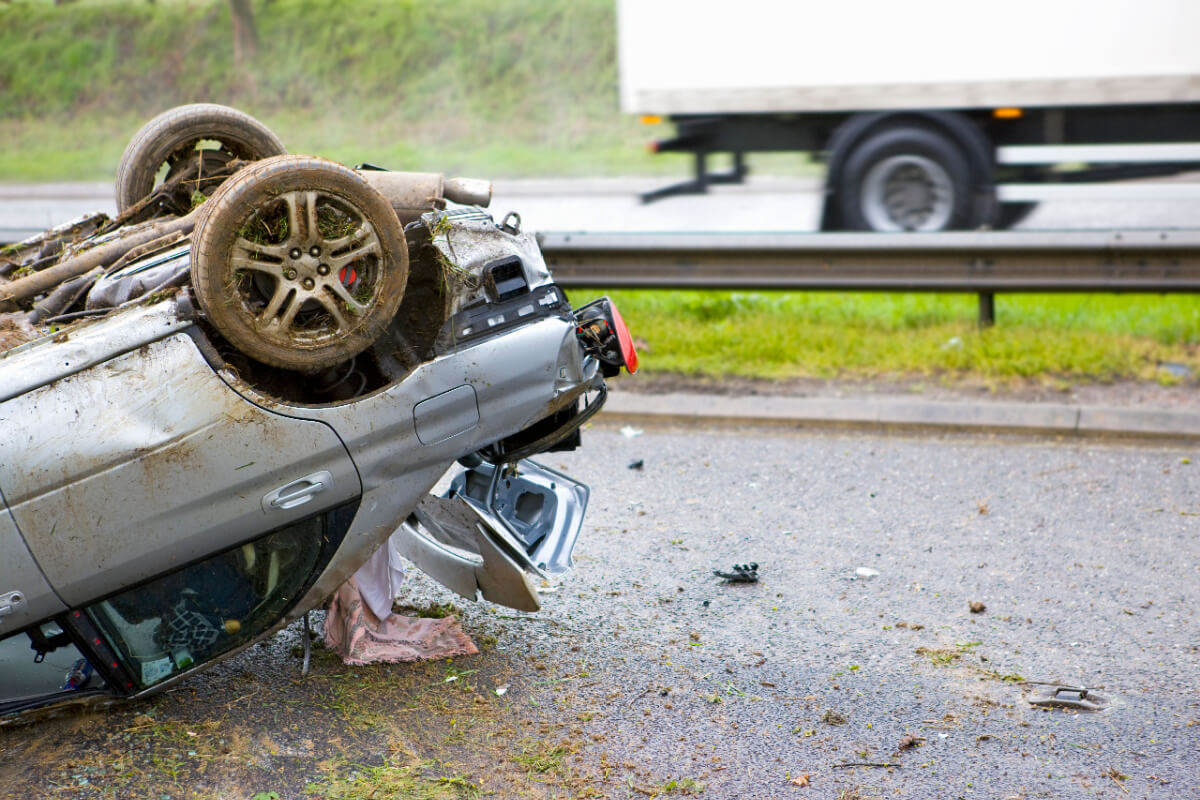
Like all accidents, tire blowouts can be terrifying and dangerous. According to the Center for Analytics & Research in Transportation Safety (CARTS) at Louisiana State University, in 2019, there were more than 72,000 injuries and 722 deaths on Louisiana roads. The 2020 data were similar. If a tire blows out on a busy highway or at high speeds, the driver may lose control and have a rollover or other devastating accident. According to NHTSA, tire-related crashes resulted in 612 motor vehicle traffic fatalities in 2019, which accounted for about two percent of all fatal traffic accidents. Tire failure contributed to five to ten percent of all accidents (fatal and non-fatal.) In general, about 31 percent of all traffic accidents involve more than one vehicle. However, when the accident involves a tire blowout, another car will be involved in the crash about 50 percent of the time. Tires fail frequently, so tire-related accidents are no surprise.
Causes of tire blowouts
A tire blowout happens when there’s a rapid loss of pressure from your tire while driving and the tire bursts. According to the National Highway Traffic Safety Administration (NHTSA), under inflation or over inflation and low-tread were the two leading causes of tire blowouts. In addition, aging tires with worn treads and bald spots are more likely to blow out. Experts recommend professional tire maintenance and replacing old tires with new ones about every five or six years. Other causes may include:
- Poorly designed or manufactured tires.
- Running over some sharp objects like nails or hitting a pothole while driving on the road.
- Using the tire more than its life could also cause blowouts. Since tires are made up of rubber, they’re a limited life product.
- Debris and other hazardous road conditions, such as potholes
- Weather conditions are also a factor. Tire blowouts often happen in summer or during periods of intense heat.
Who may be liable for a tire blowout accident?
Determining liability in a tire blowout crash is a complex matter. As with many car accidents, driver negligence is frequently the cause. Therefore, the driver is responsible for any resulting injuries. A driver can be liable for:
- Failure of duty to inspect
- Driving with defective equipment
Other potentially liable parties include:
Tire manufacturers
Mechanics. If a mechanic has performed maintenance, they could be liable for installing the wrong type of tire or for failing to recommend replacing the tires.
Entities responsible for road maintenance. The party responsible for road maintenance might be liable for your injuries. This may be a governmental entity.
Product Liability Claims
In a product liability claim, the party who offers a defective product to a consumer is accountable for any damage caused by the product. This includes the manufacturers of various components, the party who assembled the product, the wholesaler, and the retailer.
Tires must conform to specific safety and inspection standards. Therefore, product liability cases usually involve experts to analyze and testify about the tire and the circumstances of the blowout.
Steps to take after a tire blowout accident
Tire blowout accidents may be a crash, rollover, or accident with another vehicle. It can cause severe injuries and significant property damage. Common injuries include traumatic brain injuries (TBI), spinal injuries, neck injuries, broken bones, scarring, and even death. A person involved in a tire blowout accident should take certain steps, such as:
Seek medical attention. Even if you think your injuries are minor or that you have no injuries, it is essential to obtain medical care. Many injuries do not become apparent until days or weeks after the accident. Also, for purposes of a lawsuit, it is important to document any possible injuries immediately after the accident.
Contact the police. According to Louisiana law, you must file a report with the local police station if the accident results in injury, death, or property damage over $500. Also, if the accident results in injury, death, or property damage over $100, a written report of the accident must be forwarded to the Louisiana Department of Public Safety and Corrections (DPSC). Failure to report an accident may result in penalties, including a fine or imprisonment. In addition, reporting a car accident documents the accident, which may be helpful in any legal action.
Gather contact information. Collect contact and insurance information from other drivers at the scene.
Take pictures of the vehicles and the accident scene.
Keep a journal of your recovery from injuries.
Gather information about the tire. Any information you have concerning purchasing your tires and service records will be valuable for a personal injury case. For example, if you believe that the tire was faulty, you may need to establish that your tires were not excessively worn, the pressure was appropriate, and the vehicle was not overloaded.
Vehicle damage reports. Your insurance provider may require vehicle damage reports to claim the cost of repairs from the insurance provider for the person at fault.
Settlement offers. Do not agree to any settlement offers without consulting your own attorney.
What if you have a tire blowout while driving?
Many inexperienced drivers are unfamiliar with proper car maintenance, such as inspecting tires and tire pressure. In addition, driver inexperience is a factor in handling a tire blowout while driving.
The tire failure may feel differently depending on whether it is in the front or back. In the front, you will feel it more intensely in the steering. In the back, you will feel it more in the body of the vehicle. Either way, the steps for safely responding to a tire blowout are the same. Try not to panic or overreact. It is important to keep the vehicle balanced and within your control. Focus on:
- Holding the steering wheel with both hands.
- Maintaining your vehicle speed if possible and if it’s safe to do so.
- Slowly releasing the accelerator.
- Steer in the direction you want the car to go.
- As soon as possible, slow down and pull off onto a safe area.
Damages in a tire blowout accident
Compensation for an accident victim’s injuries and losses may include:
- Past and future medical bills, including rehabilitation costs
- Loss of wages and earning potential
- Pain and suffering
- Emotional distress
- Loss of companionship
- Property damage
After considering the various aspects of compensation, it’s imperative to be aware of common factors that lead to accidents. Distracted driving is a significant concern, with many accidents resulting from behaviors that divert the driver’s attention. You can learn more about this at distracted driver behaviors. Following an accident, it’s crucial to know the necessary steps for recovery and safeguarding your rights, outlined at post-car wreck actions. Additionally, adverse weather conditions like driving in heavy rain can intensify road hazards. It’s also worth noting that firms like Alvendia Kelly & Demarest don’t only handle car accidents, but also broader issues such as the Hard Rock class action request and matters concerning hurricane Ida and resurging communities.
A tire blowout accident can lead to catastrophic, life-altering injuries. It is important to speak with an attorney as soon as possible after the accident, as there are deadlines for filing claims. For more information or a free consultation, call the experienced, dedicated attorneys at Alvendia Kelly & Demarest at (504) 618-1624 or contact us online.
Categories
- Bicycle Accidents
- Car Accident
- Case results
- Class Action
- Community Aid
- COVID-19
- Fun
- General
- Hard Rock Lawsuits
- Holiday
- Insurance Claims
- Legal Advice
- Mardi Gras Accident Attorney
- Mass Tort
- Medical
- Motorcycle Accident
- Personal Injury
- Practices
- Premise Liability
- Recent News
- Safety
- Truck Accidents
- Uncategorized
- Weather
- Work-Related Accident

In 2003, after being dissatisfied with the quality of legal care for victims of car accidents, Roderick ‘Rico’ Alvendia sought to establish a new firm focused on providing high-quality legal services to aid injured victims and their families. J. Bart Kelly, sharing Rico’s passion for upholding justice, joined the firm later that year, and established a partnership.






